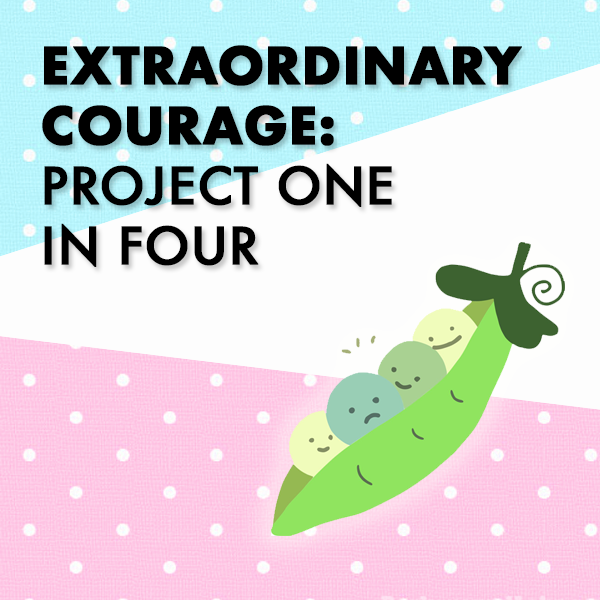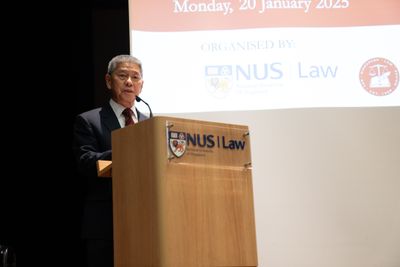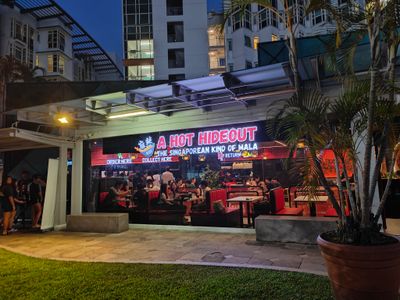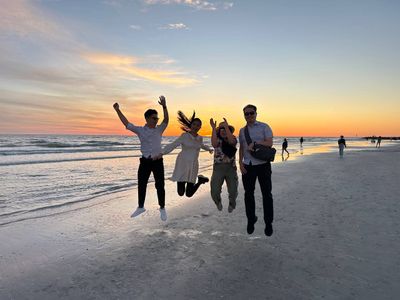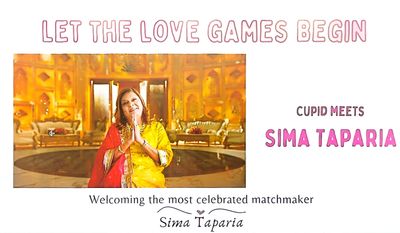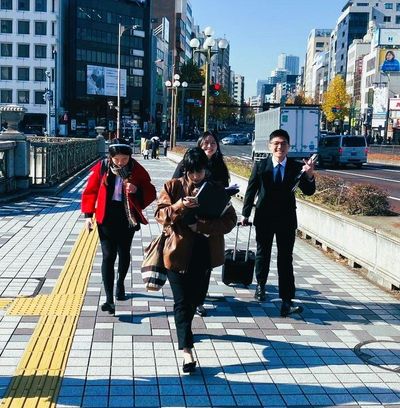In one of its earliest forms, the word courage meant, ‘to speak one’s mind by telling all one’s heart’. … we typically associate courage with heroic and brave deeds. … Speaking from our hearts is what I think of as “ordinary courage”.
Brené Brown, I Thought It Was Just Me: Women Reclaiming Power and Courage in a Culture of Shame
In law school, to be courageous is to be ordinary. We speak our minds in class, apply for activities we aren’t fully qualified for, and rise to incisive questioning of our arguments. What is not ordinary is to be a different kind of courageous — letting strangers strolling through Block B peer into a less varnished version of yourself, hoping stories and statistics spur authentic, community-wide conversation about what it means to be human, and what it means to be human in this school.
Few commitments in law school demand as much extraordinary courage as speaking from the heart about mental illness. One of them is getting the conversation started. Justified sat down with Chow Ee Ning ’21 and Claire Chong ’21, founders of Project One in Four (POIF), to keep the conversation going.

Though peas (on the leftmost poster) may look the same on the outside, their insides may be very different. Likewise, it is often not obvious whether a peer is struggling with mental illness, based solely on their appearance and daily interactions with them. Coincidentally, the sticker dots used on the poll board nicely resemble the peas.
Justified (J): Who started the Project, and why? If not you, what motivated you to take up the mantle?
Claire (C): I guess the freshmen wouldn’t know, but a few years back there was a student-run initiative by our current Year Fours called Project Wellness. That’s where all the “Go home for dinner!” posters came from. There was a whiteboard put up too — but after that, I think they sort of went dark?
Ee Ning (E): Yes, I remember as a freshie, it was quite refreshing to see that there was someone looking out for our welfare as law students. But we felt it was a little lacking, so we decided to rebrand.
C: I don’t really think POIF is a continuation of Project Wellness, but it’s similar in the original objective. We’re not really a ground-up initiative either, and we’re hoping to continue doing this over the years. Honestly, Ning and the others can probably talk more about this. I only got involved when Hui Lyi, the current Welfare Director for Law Club, approached me, your Not-So-Friendly Neighbourhood Clinical Depressive, for … an experienced opinion, I guess. We already know each other from previous work in FOCC [Freshman Orientation Central Committee] and the fact that I constantly lurk the corridors like … a cursed spirit. They already had something brewing at that time.
E: Like Project Wellness, we wanted to push for mental wellness in law students. But we wanted to push it further than Project Wellness ever did — we wanted to shine a light on mental illnesses, not shying away from tackling them head-on. The Y3s who started the Wellness Project were very helpful! They gave us a lot of tips and volunteered their help — if any of you are reading this, thank you so much for your guidance and for being brave enough to push for mental health initiatives in law school?
J: Was the Project inspired by movements in other faculties/universities?
C: We handed out umaibo in exam welfare packs with a bookmark. I don’t think anyone else quite shares the extent of my love for this particular corn puff snack so… for that move, no. When we were discussing the exhibit, I was inspired a lot by — I think there was a “Families” exhibit along 313@Somerset a while back, featuring black and white portraits of families, including LGBT ones, with write-ups? I had that in mind when we were originally discussing it, and also those American middle school science fair panel boards.
But this was in the early stages of discussion, the eventual execution was tanked by the others while I… lapsed into oblivion. Kai Hao also happily decided to help in my place and did most of the design work! I… was suspicious about his willing involvement at first but… thank you.
E: Yeah. Claire, Kai Hao and I definitely absorbed a lot of input from the people around us. For a month or two leading up to the final execution, I went around asking all my peers what they thought POIF should be: what they wanted to see, or what they thought of our exhibit idea. A lot of people tried to tell me that promoting mental wellness in Law School was an uphill battle, and that it couldn’t be done. I think those words made me even more motivated.
A lot of people tried to tell me that promoting mental wellness in Law School was an uphill battle and that it couldn’t be done. I think those words made me even more motivated.
To answer your question, I don’t think we were really inspired by any student movement per se, but we definitely took a lot of pointers from the Beyond the Label campaign by NCSS (you might have seen them — probably have — at bus stops). At the root of it, however, POIF really started out as a personal desire by Claire and I to try and remove stigma against mental illnesses in law school. We all know there are people struggling with their mental health – yet, we don’t talk about it as openly as we should. Just saying the words “depression” or “anxiety” warrants an uncomfortable look, much less confessing to having these clinical problems ourselves. By putting names and faces to these mental health issues, we get to show the people around us that these afflictions are real and should be taken seriously.

Posters, ‘Beyond the Label’ campaign, National Council of Social Services. (Source)
J: How have your peers and professors reacted?
C: I’m also one of the people who didn’t mind sharing my “story”, so I got a few texts saying that I was really brave for sharing. Thank you! To everyone who has said that. People close to me have also dropped by and paid their respects at my standee. But it’s a little weird because I’m pretty sure I’ve not shared anything ground-breaking or inspiring, just how I’ve lived for as long as I can remember. Other than that you’d notice that the exhibit doesn’t have particular credits like, “Done by so-and-so” so I guess no one quite knows who’s involved in the Project either. We’ve had some nice feedback passed along though. Thanks! Again.
E: So many people reacted — definitely more than I expected. Some came forward with their own stories, and others (including alumni!) thanked the Project for our work. What was most shocking, though, was hearing people talk openly about mental health along the corridors/at the exhibit… Just the other day, I saw someone at The Summit passing the UHC counsellor contact to his friend. I never thought that the exhibit would impact people so quickly. It was very rewarding, and I hope this starts a trend in law school!
Just the other day, I saw someone at the summit passing the UHC counsellor contact to his friend. I never thought that the exhibit would impact people so quickly.
For those wondering why we didn’t credit ourselves in the exhibit — I personally rationalized it as such: anyone can be a member of POIF, as long as you care about mental wellness in law school! We’re always happy to see our Project grow, and to seamlessly pass our efforts on to the next batch. Everyone should find their own role in promoting mental wellness – whether you are making sure you are mentally well, or holding mental health events in school. There’s no real need to designate mental wellness efforts to any particular group of people. It would be ideal if all of us were committed to this cause together!
C: I haven’t had any reactions from my professors — kind of a terrible student so … never really had a wonderful relationship with any one of them that would inspire any extent of a reaction.
E: I’ve had brief conversations with staff and professors stopping by to take a look at the exhibit. I think all of them learned something from the exhibit, even though they were a little awkward just… standing there and looking at a mental health exhibit. Guess we have to work harder!
J: Did you ever consider having the stories anonymised? What was the main consideration behind putting names and faces to them?
E: Of course. Actually, when I first posted the announcement on Overheard, I had fully expected the applicants to all want to be anonymous — I was so ready to hold an exhibit full of faceless people. To my pleasant surprise (and maybe also because I approached each applicant on a personal basis), all of them were comfortable with sharing their stories openly.
C: For me, I was okay without being anonymous because I think just about anybody who will ever meet me will know basically on the first introduction that my mental health is in constant shambles and that I’m a cocktail of disorders. It’s possibly more impactful, though, to see a face proudly plastered there because mental illness is perhaps not the most popular discussion topic in many circles and — hope I’m not wrong in saying this — I’m an anomaly in being open about it. If you’re keeping it a secret I imagine seeing my stupid face beaming while I talk about wanting to die may affect you in some way.
E: Yeah, Claire was quite the anomaly, though. I think she was one of the more open ones. For all the participants, however, I really made sure to think everything through carefully and properly. It was important to me that all my friends sharing their stories stayed as safe as possible — to be honest, I spent a lot of sleepless nights thinking about whether the exhibit would cause people to give them stilted looks, or to look at them differently.
But it is so rare that so many people want to share so openly, so I couldn’t let them down. Claire, Kai Hao and I had a face-to-face meeting with all the participants to make sure they were all ready to take on the exhibit. Then we crafted questions and kept reminding them to share only what they were comfortable within our Telegram group. Yeah, I don’t really know… I just tried my best, tbh. We checked with the school too.
J: Did you scrap any ideas? If so, why? And what’s next for the Project?
E: We didn’t really have many scrapped ideas — all scrapped “ideas” were just Claire and I goofing around, such as having an Aunt Agony confession booth for people to whisper their secrets to us (laughs).
C: I wanted that for gossip.
E: Our Project is super stoked for future initiatives though! Some things we have lined up: more informative posters on mental wellness in Law School — that will not be as lame as they now sound. We also have a Reddit-style QnA where people can ask us [the Project, the participants, and/or anonymous students] questions — we’re super excited about this! Please participate! We are also looking into an encouragement board of sorts — i.e. a more permanent structure.
We have a few more possible initiatives in mind. One is discussing mental health with staff and faculty to establish better communication on both sides, and to figure out a better arrangement for law school. [Referring to how University Health Centre counsellors are only on campus at Bukit Timah once a week.]
Another one is building a mental health community! Personally, I was very heartened by the community that quite naturally arose from holding this exhibit. Through this Project, I have gotten to know so many people — not only people who are indeed mentally ill, but also people who are struggling, and strangers that have reached out to me after the exhibit! This was one of the best side-effects of the exhibit. I know now that there is a supportive community (or at least a community that is willing to learn how to be supportive) in BTC, and it would be great if we could just chill with or rely on each other if we need anything. POIF could be a very good platform for our community to care for each other more!
Lastly, Project Wellness thought of having “mental health days” that involved just chilling and watching movies as a Law school community. This may not come into fruition in our year, but it might be a good outlet for releasing some exam stress!
POIF’s maiden exhibit has clearly sparked conversations and warmth all round. A friend commented that the exhibit surprised him. While he knew plenty of friends with mental illnesses outside of BTC, he was surprised to see that mental health was not necessarily a barrier to doing well in national examinations, and making it to law school.
It is very encouraging to witness a student-run, ground-up initiative generate empathetic and empowering conversation. Justified wishes the Project the very best in their future endeavours!
POIF emphasizes that they are taking any and all input with regard to mental wellness initiatives in law school. Do reach out to them if you have suggestions, and/or would like to help out with future initiatives!


